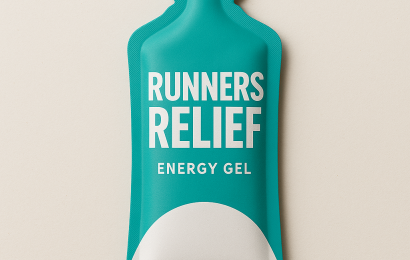
Should you run with a cold?
It’s that time of year; everyone is wrapping up for their runs and the Runners Relief team are full of cold.
Should we still be running?
The best answer is no. The reasoning? Your body is using up a lot of energy to fight whatever bug you caught and it needs to conserve the energy in order to get you back to 100%. If you go out running, your body has to split your energy resources between exercise and recovery. The worst-case scenario is that you feel worse after your run, or that you recover much slower.
If you do decide to go for a run in the early stages of a cold, consider using our Runstrips to open the airways and improve the flow through that congested nose!
This is a Runners World article, click here to read it on their website.
How to know when you should run through a cold, or when it’s best to rest
There are times when going for a run in the crisp, open air seems like a great way to clear your head when dealing with a congested cold. However, there are also moments when the only thing you feel like doing is curling up under a blanket and skipping your workout altogether. So, how can you determine the best approach, and is running when you’re unwell ever a wise decision?
Should you go running when you’ve got a cold?
You’ve probably heard of the below the neck rule. Some doctors and other health care professionals suggest obeying this rule when deciding whether to head out the door or not when suffering with a cold. The idea being that symptoms that are involving the neck and below – so that’s sore throats, coughs, chest congestion, bronchial infections, body aches, chills, vomiting, diarrhoea or swollen glands – require time off from running. Whereas any symptoms above the neck – a runny nose, stuffiness, or sneezing (what some people may refer to as a ‘head cold’) – generally don’t indicate anything more serious, and so don’t require time off.
Though it’s certainly not an exact science, running can sometimes actually help with certain cold symptoms. This is because exercise releases adrenaline, also called epinephrine, which is itself a natural decongestant. This is why going for a run when your nose feels very stuffy can actually help clear out nasal passages, even if only temporarily.
But if you decide to run, just try and keep the pace easy, and stick to shorter distances. Even if you are on a training schedule for a marathon race, it’s better to recover than to push through a hard run and potentially make your symptoms worse.
Watch for dizziness, nausea, elevated heart rate or abnormal sweating – and stop running immediately if you experience any of these symptoms.
Even with precautions, training through an illness – even a mild one like a cold – is not without risk. The odds are low, but it is possible that runners could escalate a simple cold into something more serious, like a sinus infection, a respiratory tract infection or even pneumonia.
Paying attention to your body’s signals is crucial—when you’re uncertain, it’s better to rest. Forcing yourself to train could result in needing a longer break from your routine. Missing a few days won’t significantly affect your fitness or derail your training, but pushing through when you shouldn’t could lead to setbacks.
When should you return to running after suffering with a cold?
It’s best to wait a full 24 hours after your symptoms have gone, but especially if you have had a raised temperature or fever, before you go back into training. Again, it’s best to resume with short, easy paced runs and rebuild distance gradually. If needed, incorporating walk breaks into your runs can also assist with adding to your fitness and distance.
While you are resting
Rest, drink lots of fluids and monitor your symptoms closely. Nobody wants to waste doctor’s time, but if your symptoms are concerning you and are more serious than a standard cold, you can of course seek medical advice. By taking care of yourself, the odds are in your favour that you will be ready for that next long run.
Does running make more me more likely to get a cold?
There is some limited evidence that runners who train at high levels – like elite athletes – may be at greater risk of getting respiratory infections. And some research also suggests that marathon runners have more upper respiratory tract infections when they are at their peak mileage, and in the period immediately following a marathon itself.
This may be due to many factors. The intensity of hard training may have an effect on the immune system, but in the immediate post-race period, it may also be related to other factors such as stress, inadequate recovery time and fatigue from the training and race. Again, it’s important to rest and recover fully – and in the immediate aftermath of a big race, you have nothing to gain by going back to running too quickly anyway.
Tips For Running With A Cold
If you insist on going for a run, then consider the below…
Lower the intensity – go at a comfortable pace
Stop your interval training – it puts your body under too much stress
Cut the distance – now’s not the time to run long
Turn off any GPS tracking devices – don’t be tempted to push yourself too hard
Don’t run in a competitive group – you don’t need to be pushed beyond your comfort zone right now!
Stay clear of races – you might need to pull out of any big ones coming up
Don’t forget to dress for the weather – As well as winter running gear like long tights and thermal base layers, be sure to add
wearing a beanie hat, arm warmers and gloves.



